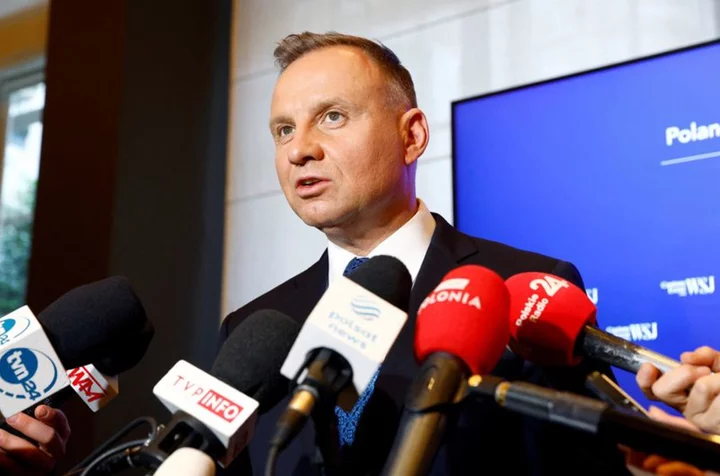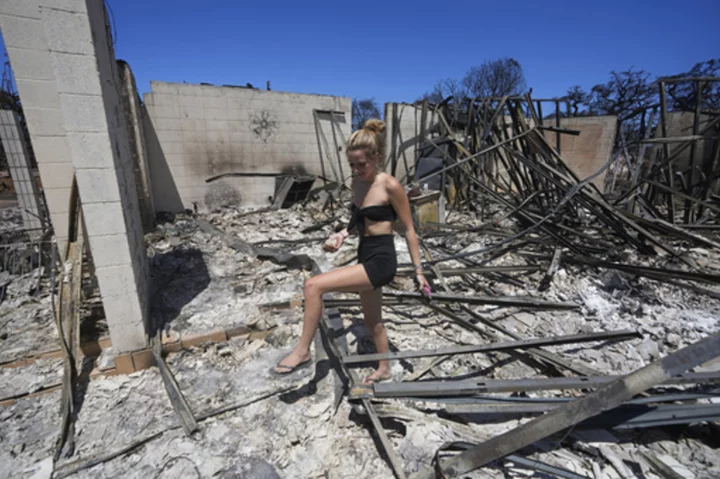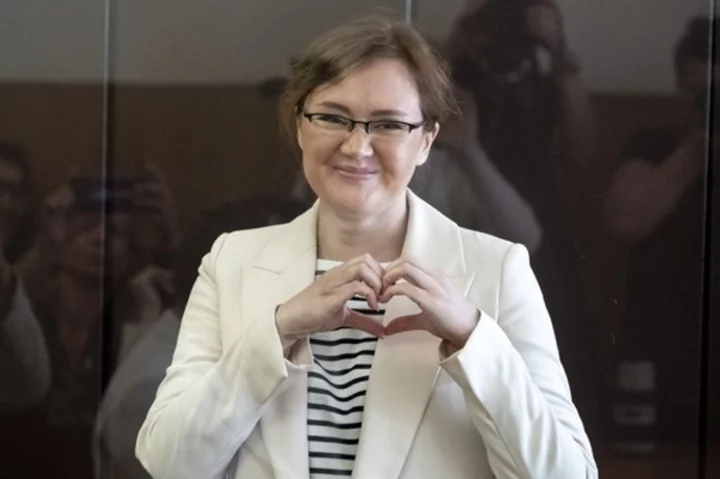WARSAW (Reuters) -Poland's President Andrzej Duda said on Friday he would propose amendments to a law on undue Russian influence he signed this week, reacting to criticism that it could result in banning opposition politicians from public office.
Duda signed earlier this week into law the bill proposed by the ruling party to let a panel investigate whether opposition parties allowed Poland to be unduly influenced by Russia. He said on Monday he would send it to the Constitutional Tribunal for review only after it comes into force.
The law drew criticism from lawyers and opposition politicians, as well as the U.S. State Department and European Commission which expressed concerns that it could effectively ban individuals from holding public office without proper judicial review.
"Appalled by these allegations... I have prepared an amendment to the law, a series of provisions which regulate or amend the issues in this law which aroused the greatest controversies," Duda said in a televised statement.
He said the proposed changes would include provisions banning members of parliament from becoming members of the commission, allowing appeals to a general court, not an administrative court, and removing the provisions which would allow people to be banned from office.
"I propose removing those measures, leaving only a statement of the commission that a person who has been found to be acting under Russian influence does not guarantee the proper performance of public duties," he said.
Duda said his proposal would be submitted to parliament on Friday.
Opposition politicians criticised the president for changing his mind on a bill he signed just days earlier and said the proposed amendments did not address the issue of establishing such a commission.
"The amendment proposed by the president as a result of social pressure does not change anything. The entire law establishing this illegal kangaroo court should end up in the trash," Wladyslaw Kosiniak-Kamysz, leader of the Polish Peasants' Party (PSL), wrote on Twitter.
(Reporting by Anna Wlodarczak-Semczuk and Pawel Florkiewicz;Editing by Andrew Cawthorne and Emelia Sithole-Matarise)









